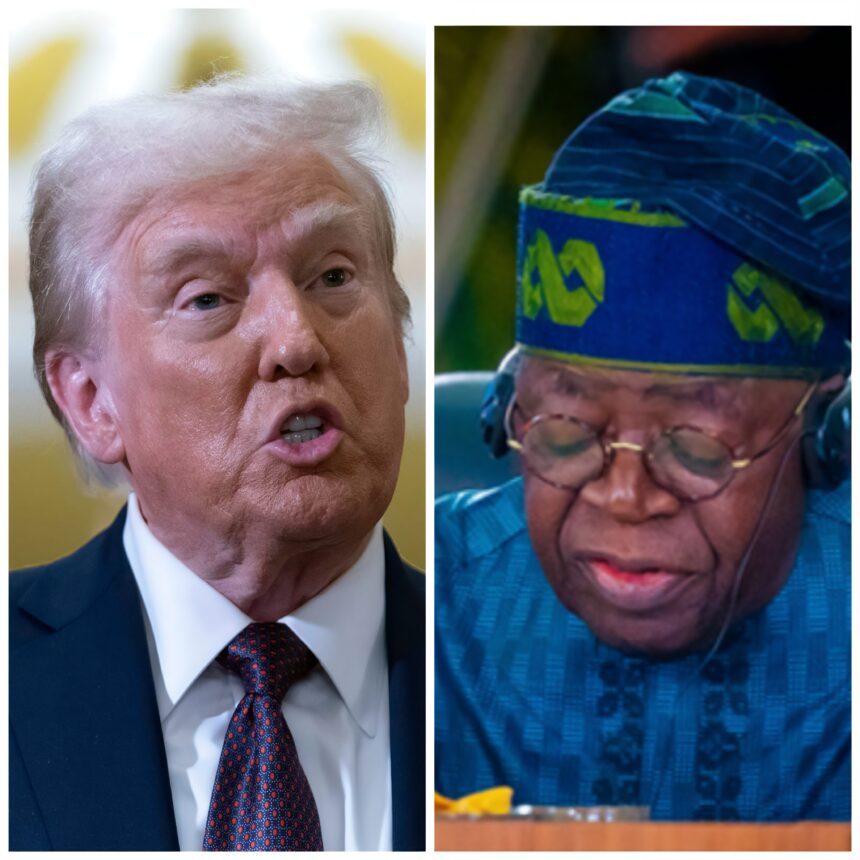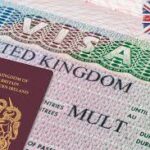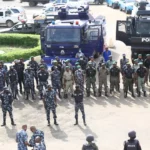The U.S. visa cut for Nigerians, Tuesday, triggered diplomatic tension between the United States and Africa’s most populous nation as the U.S. Department of State notified that, effective immediately, most non-immigrant and non-diplomatic visas issued to Nigerian citizens will now be single-entry with only three-month validity.
This is a shocking departure from the two/five-year validity visa with multiple entries previously issued to Nigerians by the U.S.
The restriction largely affects Nigerians applying for tourist/business visa, otherwise known as B1/B2 visa. It has also raised confusions for Nigerian students applying for study visa—under F, M, and J categories– as they are also classified under U.S. non-immigrant visas.
But holders of all non-immigrant visas previously issued are not affected by this latest validity limit.
While Washington cites its routine “visa reciprocity process,” according to the US embassy website in Nigeria, proponents in diplomatic circles are linking the move to President Bola Tinubu’s recent participation in the BRICS summit and Nigeria’s growing alignment with the bloc.
Pan-Atlantic Kompass reports that at the summit in Rio de Janeiro, Nigeria participated for the first time as an official BRICS partner country, following its admission into the bloc on January 17, 2025.
Countries with BRICS’s full membership are Brazil, Russia, India, China and South Africa – all pushing to rival the U.S. on either trade or geopolitics or both. Others joining the bloc are registered as partner country, including Nigeria.
While the summit was on, U.S. President Donald Trump was quick to issue a warning to countries participating in BRICS and those willing to join the grouping with an additional 10% tariff on top of the previous tariff measures announced by his administration.
“Any country aligning themselves with the Anti‑American policies of BRICS will be charged an ADDITIONAL 10% Tariff. There will be no exceptions to this policy. Thank you for your attention to this matter!” Trump said in a post on Truth Social, stopping short of clarifying his “anti-American policies” reference.
The slashing of visa validity for Nigerians comes just a day after the BRICS summit ended with President Tinubu yet to return to Nigeria, as checks by Pan-Atlantic Kompass show that it appears Nigeria was specifically targeted in this latest development.
The timing has fueled speculation that the U.S. visa cut for Nigerians may not be unrelated to the country’s shifting alliances. While Trump’s administration had been making a string of announcements on its revolving immigration policies and visa bans often tracked by this digital newspaper, further checks show that no broad visa measures were publicly announced by the U.S. between Tuesday and the time of this reporting, except the new measure slapped against Nigeria.
Following the U.S. visa cut for Nigerians, the measure has technically added Nigeria to a list of countries affected by partial visa restrictions—such as the 3-month single-entry visa or additional vetting measures.
On June 4, 2025, President Trump had issued Proclamation 10949 and Executive Order 14161, effective June 9, 2025, which imposed a similar condition slammed on Nigeria on ten other countries including Belarus, Eritrea, Haiti, Laos, Myanmar, Pakistan, Russia, Sierra Leone, South Sudan, and Turkmenistan.
In that same proclamation, the U.S. government imposed a complete visa ban on a separate list of countries deemed “non-cooperative” with U.S. immigration information-sharing protocols.
The countries targeted with the full visa ban by U.S. include: Afghanistan, Chad, the Republic of Congo, Equatorial Guinea, Haiti, Iran, Libya, Somalia, Sudan, and Yemen.
These countries face a full suspension of most immigrant and non-immigrant visa categories, according to the executive order and the U.S. State Department.
Recall that in mid-June, Pan-Atlantic Kompass had reported that Trump was considering imposing a travel ban on Nigeria and a host of other countries, mostly from Africa.
The affected countries were asked to meet certain new requirements laid down by the State Department within 60 days, according to the diplomatic signals to governments, a move that triggered a response from ECOWAS.
Nigeria also featured among these countries, which included: Angola, Benin, Burkina Faso, Cabo Verde, Cameroon, Côte d’Ivoire, Democratic Republic of Congo, Djibouti, Ethiopia, Egypt, Gabon, Gambia, Ghana, Liberia, Malawi, Mauritania, Niger, Nigeria, São Tomé and Príncipe, Senegal, South Sudan, Tanzania, Uganda, Zambia, and Zimbabwe.
Last weekend in Rio de Janeiro, President Tinubu had used much of his speech to urge BRICS member nations to overhaul global financial and governance structures, championing “equity and inclusion for low-income and emerging economies.” Judging by President Trump’s posture, experts in diplomacy hinted that speeches like that of President Tinubu might be considered to be “anti-American policies” as the U.S. President had earlier called out BRICS leaders on social media.
In the meantime, the U.S. visa cut for Nigerians appears to have shocked the Nigerian Ministry of Foreign Affairs, as it said it did not initiate any new policy to trigger a reciprocal response from the US.
In his reaction, the ministry’s acting spokesperson, Kimiebi Ebienfa, reportedly said, “It is not that we initiated or implemented a new policy that they are responding to. It is most likely a long-time policy.
“It is important to understand that more Nigerians apply for visas to go to the US than Americans apply to come to Nigeria. And so, the outflow cannot be compared,” he was quoted by Premium Times as saying.
Ebienfa, who noted that countries implement immigration policies according to national priorities, also said sometimes it can reflect the “idiosyncrasy of the commander in chief.”
“Also, you know the problem Trump has been having with countries on the grounds that he is trying to protect Americans by reducing the influx of immigrants,” he added, stressing that Nigeria will respond to the U.S. visa cut for Nigerians after assessing its implications with relevant stakeholders.





